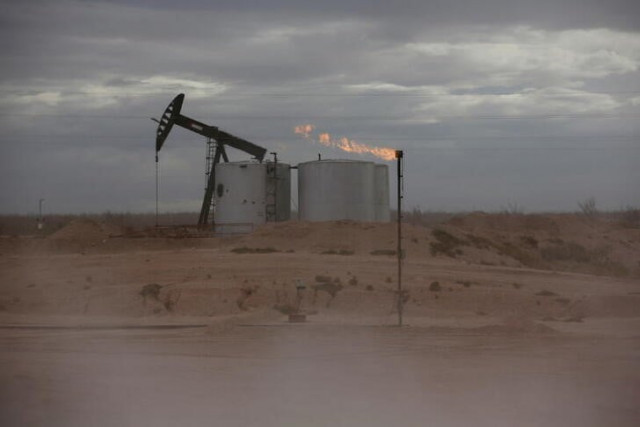Oil steady as Russia-Ukraine supply fears wane
Sanctions imposed by US, EU focused on Russian banks

Oil prices on Wednesday fell from seven-year highs hit the previous day after a first wave of US and European sanctions on Russia appeared unlikely to disrupt oil supplies.
Brent crude was down $0.27, or 0.2%, to $96.57 a barrel at 1247 GMT, after hitting $99.5 on Tuesday, the highest since September 2014.
US West Texas Intermediate (WTI) crude futures fell $0.36, or 0.3%, to $91.55 a barrel, after reaching $96 on Tuesday.
Prices jumped on Tuesday on worries that Western sanctions imposed on Russia after it sent troops into two regions in eastern Ukraine could hit energy supplies.
Sanctions imposed by the United States, the European Union, Britain, Australia, Canada and Japan were focused on Russian banks and elites while Germany halted certification of a gas pipeline from Russia.
But the United States made it clear that sanctions agreed and those which may be imposed will not target oil and gas flows.
However, analysts expect oil prices to continue seeing support from the Russia-Ukraine crisis, with some Western countries promising to impose more sanctions if Russia launches a full invasion.
"The prospect of more conflict in Ukraine should safeguard the geopolitical risk premium," said Stephen Brennock at brokerage PVM Oil.
"There is a risk that Russia will retaliate to the sanctions by reducing deliveries of its own accord," Commerzbank analyst Carsten Fritsch said.
The potential return of more Iranian crude to the market weighed on prices, as Tehran and world powers inch closer to reviving a nuclear agreement.
"Nuclear talks in Vienna are reaching a sensitive and important point," Iran's foreign minister Hossein Amirabdollahian said on Wednesday.
Yet analysts said there is little chance of Iranian crude returning to the market in the immediate future to ease current supply tightness.
"If a US-Iran deal is reached, it will ease some of the pressure but not enough to stop oil prices inching towards triple digits,” said Pratibha Thaker of the Economist Intelligence Unit.



















COMMENTS
Comments are moderated and generally will be posted if they are on-topic and not abusive.
For more information, please see our Comments FAQ